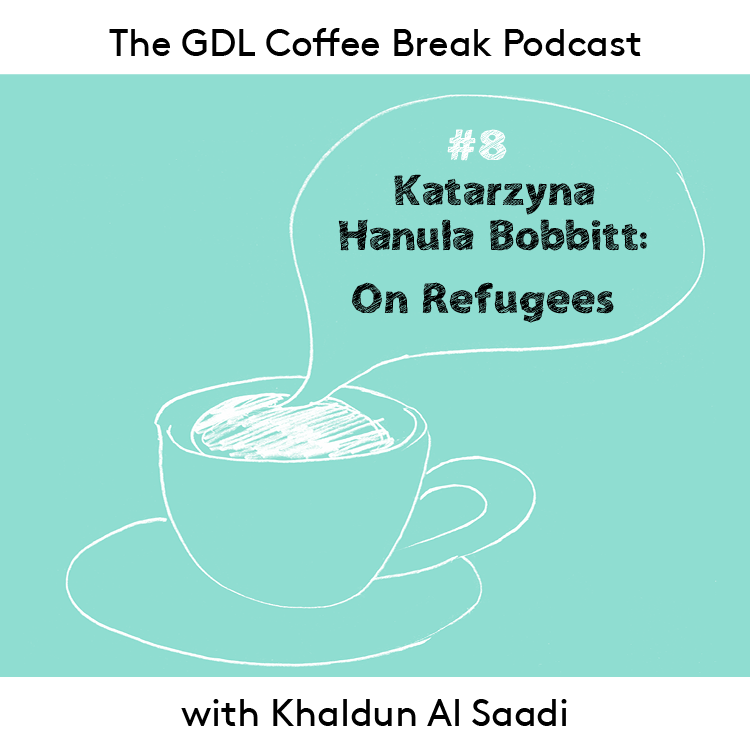Blog
Coffee Break Podcast: Katarzyna Hanula Bobbitt on Refugees
In this episode of GDL member Khaldun Al Saadi‘s Coffee Break Podcast, fellow member Katarzyna Hanula Bobbitt talks about the reductive perception of refugees as an economic burden rather than as human beings and what to do about that.
Katarzyna “Kasia” Hanula Bobbitt is an experienced political and social campaign strategist, championing various legislative and regulatory causes. She has a successful track record in designing and implementing policies at European and international level, focusing on issues such as inequality and digitalisation. With a background in behavioural economics, she researches the application of this field to public policy design. Outside of her work, she is involved in educational initiatives and social enterprise projects for children’s financial and digital well-being.
In this episode, Kasia gives a small glimpse into her lifestyle as a self-employed behavioural economist. In the morning at 5:00 a.m., she starts her work routine and structures all tasks for the day so that she can work through in a concentrated way during the day.
Furthermore, Kasia and Khaldun discuss the reality and challenges that refugees face in their new country, a matter close to Kasia’s heart. How does one, despite a financial background, manage to step out of the widespread mindset of viewing refugees as an economic-abstract thing? How can one do something for the individual fates with this expertise? And what kind of problems arise for refugees once they have overcome the first hurdles in a new country?
To learn about the answers that Kasia personally would give to these questions, please make yourself a cup of coffee and listen to the new episode on Spotify!
About the authors:
Khaldun Al Saadi has been a member of the Junge Islam Konferenz (Young Islam Conference), the flagship project of Stiftung Mercator in immigration and integration.
Katarzyna Hanula Bobbitt has experience with public policy strategies, in particular with running long-term, successful social impact campaigns and advocating for a wide range of legislative, regulatory and legal causes.
Published on June 26, 2023.
Visual credit: Julie August
